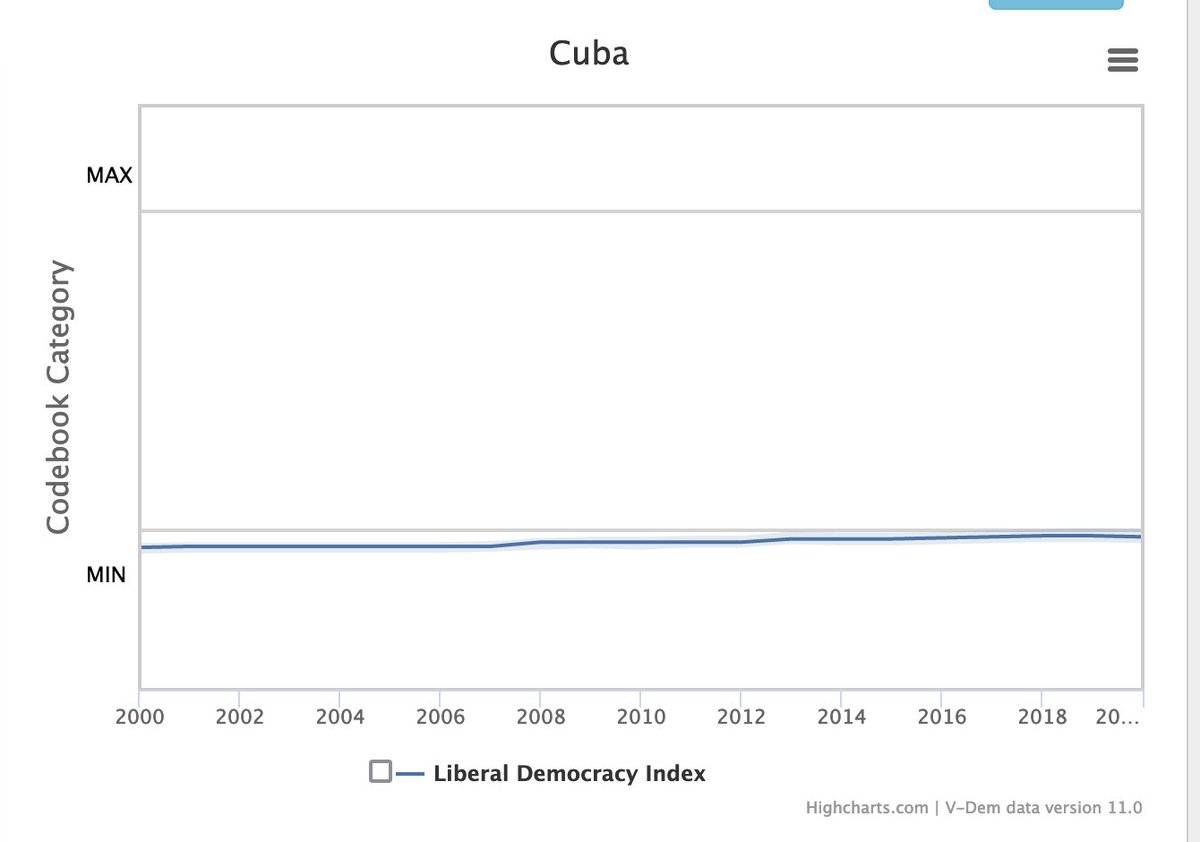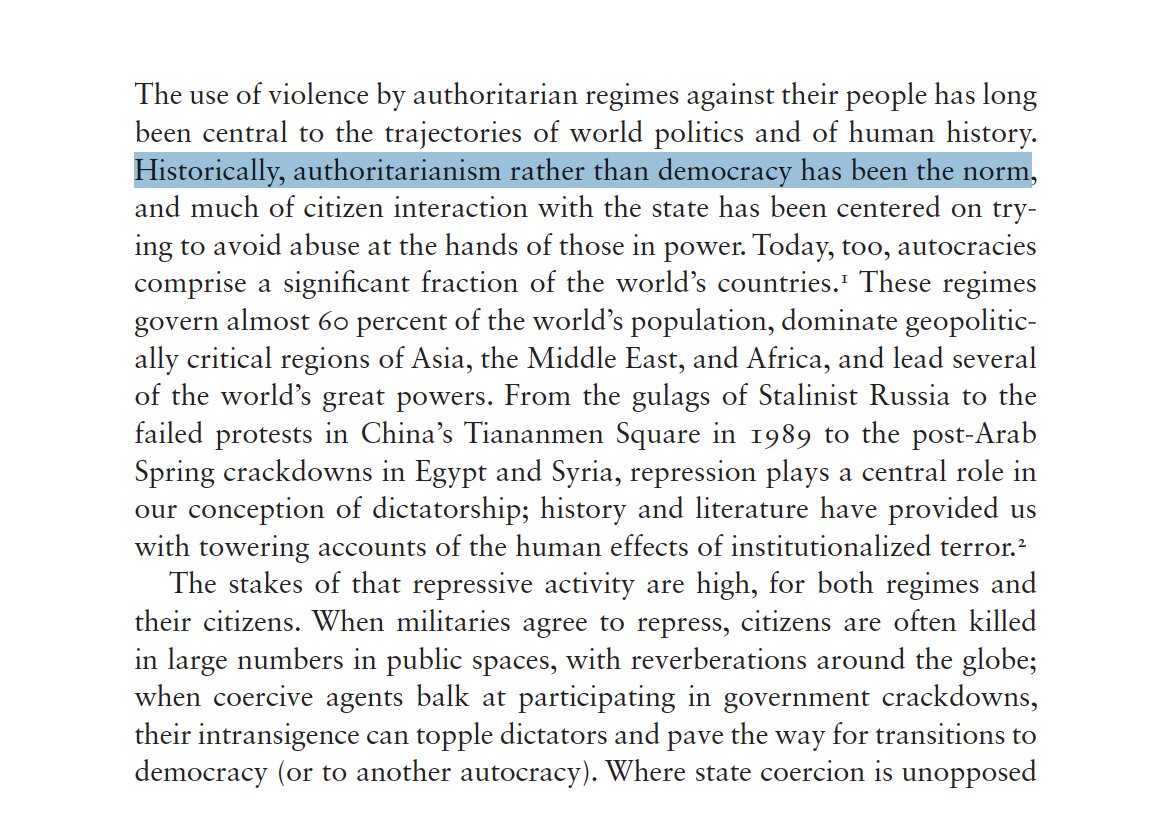
A LOT of non-democracies have elections.
This is why my Democracy & Dictatorship syllabus has a whole section on "why authoritarian regimes have features that look like democracies (courts, legislatures, elections, etc)":
This is why my Democracy & Dictatorship syllabus has a whole section on "why authoritarian regimes have features that look like democracies (courts, legislatures, elections, etc)":
https://twitter.com/BootsRiley/status/1416860653654994946

There is a whole literature on competitive/electoral authoritarianism, which has been described (in Mexico) as:
a “soccer match where the goalposts were of different heights & breadths & where one team included 11 players plus the umpire & the other a mere 6-7 players."
a “soccer match where the goalposts were of different heights & breadths & where one team included 11 players plus the umpire & the other a mere 6-7 players."
Anyway. It's Sunday & I have family stuff to do, so no time for a long thread. But:
1. Authoritarian regimes have elections. (Some purposes even overlap with democracies! We often ask grad students about this as a comps question.)
2. Elections are insufficient for democracy.
1. Authoritarian regimes have elections. (Some purposes even overlap with democracies! We often ask grad students about this as a comps question.)
2. Elections are insufficient for democracy.
Also, for all y'all yelling about Polity: yeah, it's really problematic historically, esp in rating the antebellum + pre-19th amendment US.
@ProfPaulPoast @ @benwansell had great threads on this:
@ProfPaulPoast @ @benwansell had great threads on this:
https://twitter.com/benwansell/status/1229386394658836480?s=20
https://twitter.com/ProfPaulPoast/status/1347566184749789188?s=20
Also, one more time:
https://twitter.com/SheenaGreitens/status/1416935758422761474?s=20
For everyone in replies asking "what about the US today?" here is the VDem rating (you can make these yourselves at v-dem.net/en/analysis/Co…).
L is liberal democracy index; R is multiple indices.

L is liberal democracy index; R is multiple indices.


Sorry this is a better summary of the answers to the US question:
https://twitter.com/SheenaGreitens/status/1416994191029252097?s=20
• • •
Missing some Tweet in this thread? You can try to
force a refresh














